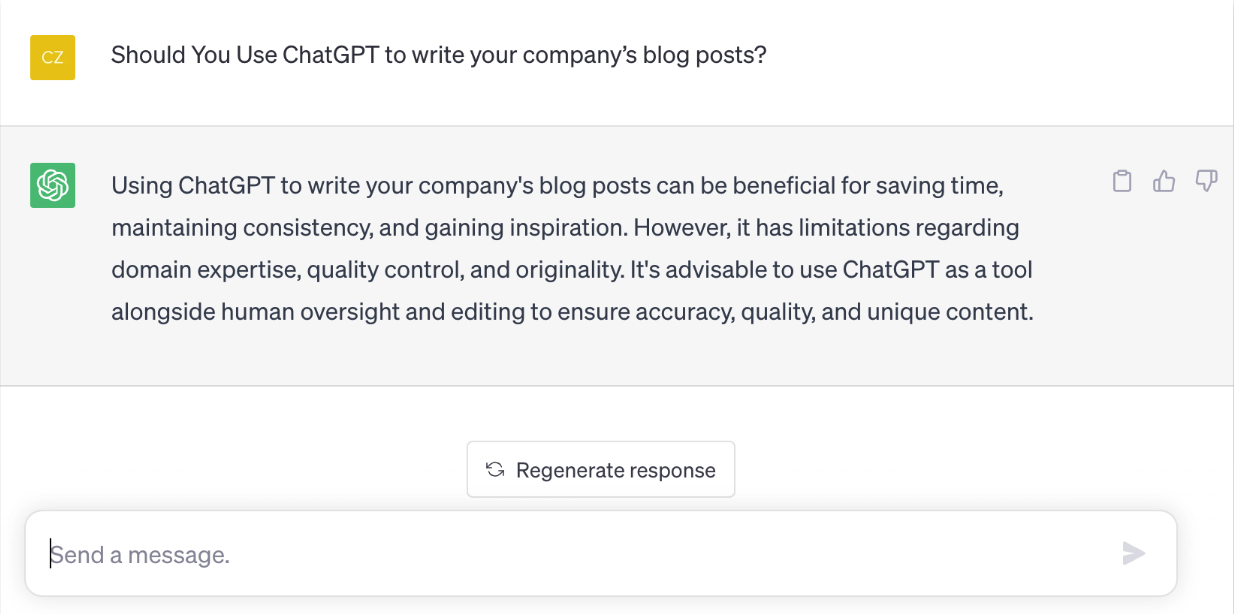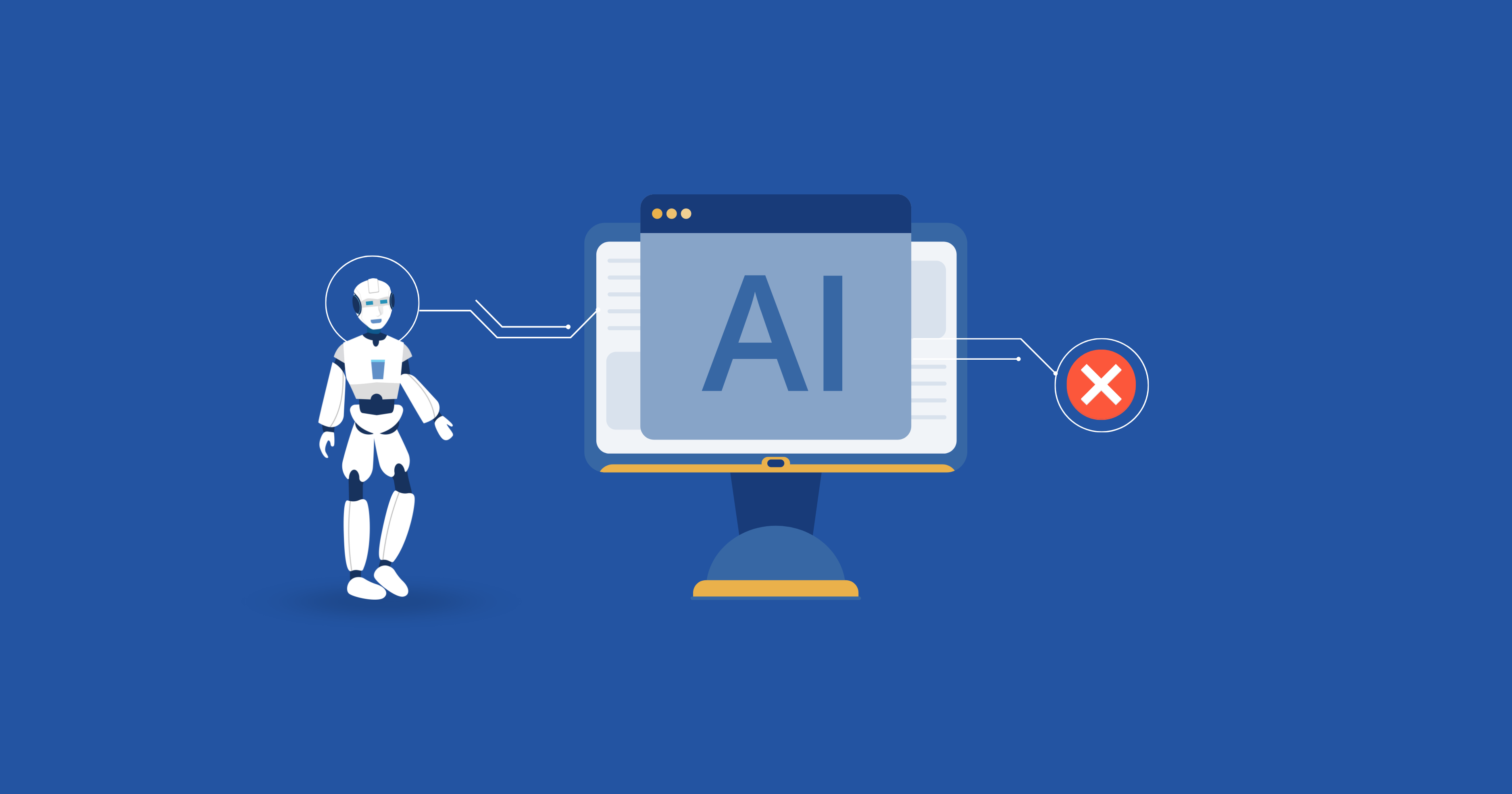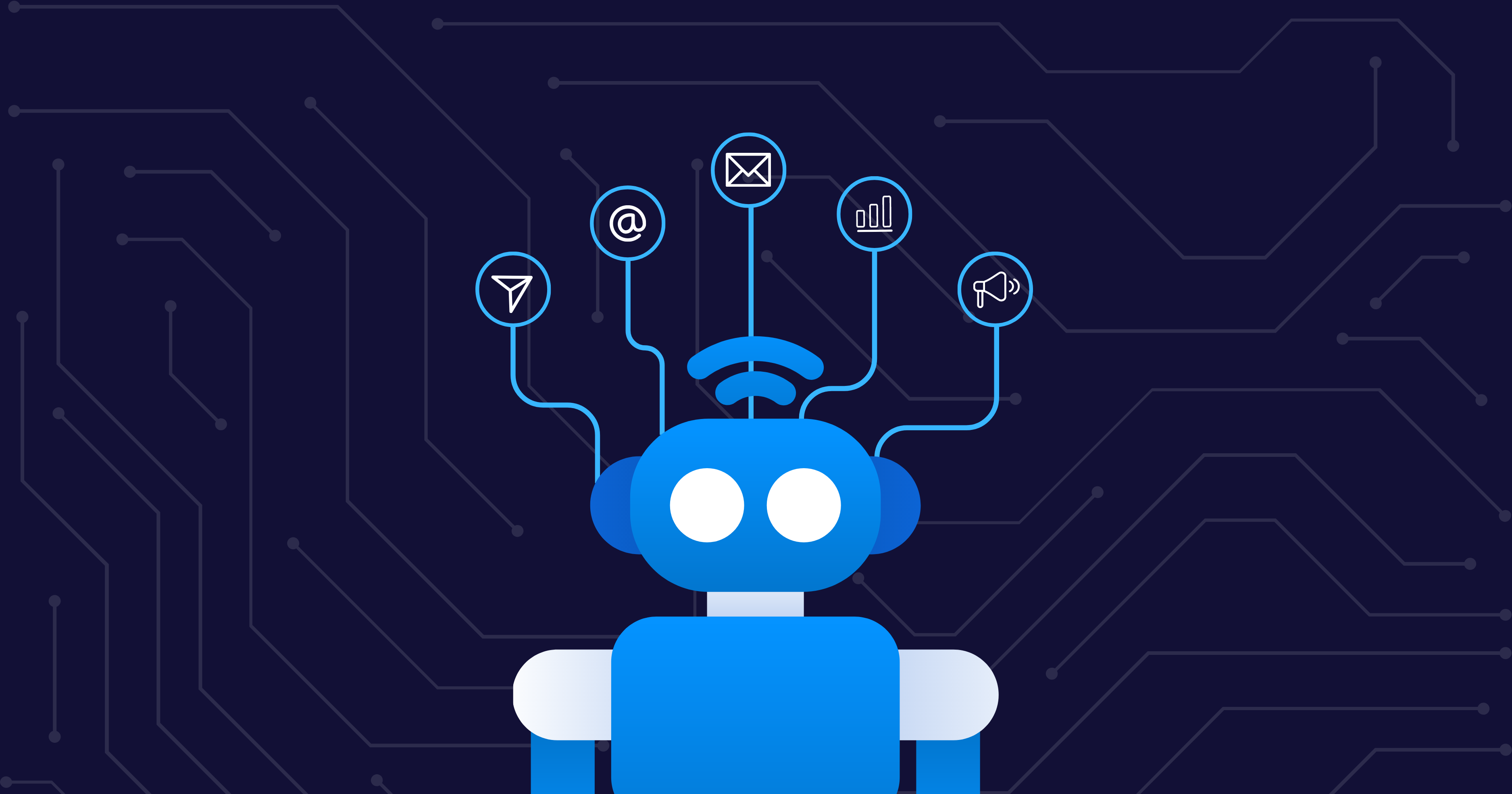AI is everywhere.
At every turn, someone is talking about how artificial intelligence is upending this industry or that — and content marketing is no exception.
About 44% of marketers have used AI in content production.
This is an exciting trend, as AI is poised to help marketers streamline their workflow and ramp up productivity. But be warned: AI cannot replace human expertise. While AI can be incredibly useful for a number of applications — including brainstorming topic ideas, creating outlines as a jumping-off point for content, brainstorming title options, keyword research, and more — it simply cannot be relied upon to maintain a high-quality, engaging, strategic blog. Relying entirely on AI to write blog content is a mistake that can have a detrimental impact on content marketing success.
Why AI Alone Just Won't Cut It
AI can be helpful when used appropriately as part of a more comprehensive content marketing strategy, but it cannot replace the expertise, authenticity, and creativity of human beings. AI algorithms might be able to produce content quickly, efficiently, and affordably, but they lack the ability to think creatively and critically, and they don't understand nuance at the same level as humans. So fully relying on AI to populate your blog can result in a lack of originality, poor quality, and a disengaged audience.
Not convinced? Well, even ChatGPT doesn't think it should be fully relied upon to write a company's blog posts. See for yourself:


Let's look at three specific areas that can suffer if you let AI take the wheel:
1. Strategic alignment
The ultimate goal of content marketing is to drive new business. To do that, your content has to create value for your audience by providing useful, informative, and engaging content that addresses their pain points and preferences. It also has to work in tandem with other components of your digital marketing mix to achieve strategic alignment and actually work alongside those other efforts toward the common goal. AI simply cannot take into account all of those factors and the nuance that comes with strategy development for your organization.

2. Audience engagement
Content marketing should create value for your readers by providing them with useful, informative, and engaging content that addresses their specific needs and preferences. But because AI-generated content is based on predefined templates and keywords, it's less likely to cater to your specific audience's unique needs and resonate with them on a human level. As a result, relying on AI-generated content could lead to low engagement with your content.
3. Relationship-building
Another critical aspect of content marketing is building a relationship with your audience. This involves developing a unique voice and personality that resonates with your audience members, which can be challenging to achieve with AI-generated content. Human beings have a natural ability to connect with others, and this can be reflected in their writing. When readers feel a genuine connection with a writer, they are more likely to trust them, engage with them, and become advocates for their brand.
What's more, relying entirely on AI-generated content can lead to serious ethical and accuracy concerns. AI algorithms can only generate content based on the data they receive, which means that biased data can lead to biased content. This can result in the propagation of harmful stereotypes and misinformation, which can have dangerous consequences.
This isn't an exhaustive list, of course, but I hope it sheds light on some of the potential downfalls of fully relying on AI to populate your blog. Human creativity, critical thinking, and personality are crucial for creating a high-quality, engaging blog experience that resonates with your target audience. If you want to create effective content marketing campaigns that stand the test of time, you need to strike a balance between AI tools and human input. This way, you can ensure your content resonates with your target audience, builds relationships, and drives conversions.











